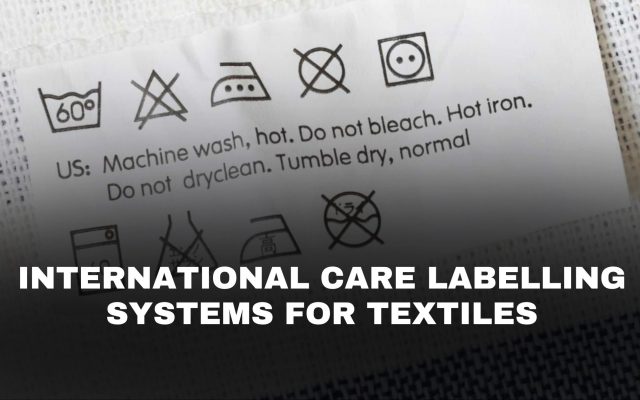For Textile Manufacturers in India looking to boost their textile exports, it’s crucial to focus on quality. The goodness of any textile product depends on its fabric, style, design, texture, appeal, and most importantly, the yarn used. Textile Manufacturers in India need to be thoughtful in picking the right fabric, considering aspects like warp and weft count, crimp, cover, GSM construction, and drape to ensure high-quality products for export.
In this blog, we have highlighted the important growth tips for textile companies in India to
survive the export game.
Tips on Improving Profitability for Textile Business for Exports
Various factors influence export profitability, but India’s future export prospects remain
brighter than ever.
- Indian garments and apparel industry constitute the most prominent segment in textile
exports. And large textile manufacturers in India with huge production capabilities
provide an easy and affordable source of raw materials for garments. - Compared to other countries, India has the advantage of significantly lower labor
costs. - Government of India has implemented several policies and measures to aid the textile
sector (export promotion councils, technology upgradation, export parks, and
incentives, and direct foreign investments are a few to name), which will significantly
increase textile imports.
Take Immediate Action in the Production Process
Several elements are added when we process fiber to yarn and yarn to fabric, such as dyes,
chemical auxiliaries, and more. The production process goes through the dye house, lab, and
shop floor, which might create certain problems. Fabrics used, quantity, and quality of dyes
and chemicals should be accurate to ensure the end product is error-free and of fine quality.
Indian manufacturers must implement stringent inspection and quality control standards
based on the international buyer’s guidelines, such as the chemicals used, techniques applied,
and the reliability of the machinery.
German and European cotton buyers have also implemented ecological parameters, such as a
ban on using anime, heavy metals, and allergenic dyes and restrictions on the use of PCP.
Continuous Testing and Quality Control
Textile Testing and Quality Control (TTQC) is crucial for export-oriented textile companies
in India. All international fabric buyers look for quality over quantity. Quality has to be
maintained in every department of the textile industry, as one directly impacts the other. For
instance, if quality fiber is used, you will get good yarn; if quality dyes and chemicals are
used, you will get durable fabrics.
You must exercise quality control right from the initial stage (fiber to yarn and yarn to fabric)
to the final stage, i.e., the garment. Quality control must also be implemented in presales and
post-sales services, delivery, pricing, packaging, and order fulfillment. Ways to control the
quality of cotton fabric sold online include:
- Inspect raw material based on the “4 points” or “10 points” systems.
- Get fabrics and accessories tested in labs to ensure the raw material meets the buyer’s
standards. - Check quality during the process, like fabric cutting, sewing, and finishing the end
product. - Identify sewing defects, stains, loose threads, and measurement inspections.
- Send the final product for testing for color fastness, seam strength, slippage, size
fitting test, tensile strength, azo-free, etc. - Conduct audits based on AQL garment requirements.
- Check for lean manufacturing using tools like PCDA, Kanban, and 5S.
Improve Awareness About the Latest Technology
Only top textile companies in India and fabric suppliers are leveraging the power of state-of-
the-art technology and machinery instead of working with conventional methods. Automation
improves production quality and delivers consistent results, which fabric suppliers using
traditional methods often fail to deliver, resulting in less export trading.
In terms of fabric production, tremendous technological improvements have been
implemented, such as eControl for dyeing cotton without salt and ETP Zero discharge.
When it comes to trading and exporting, TEXchange has revolutionized the game with its
cloud-based, digital, automated trading solution. Textile companies worldwide can buy fabric
online from India with just a click of a button from any mobile device and location.
Commitments Textile Manufacturers in India Need to Fulfill
Company workforce must be trained in modern technology and machinery and how to
operate them and streamline processes.
Fabric suppliers must ensure commitments are fulfilled, and orders are processed on time.
Deliveries must meet the deadlines to minimize the cost of goods returned.
The fabric quality should meet the requirements of top organizations and councils that set
textile standards, such as GOTS, ISO, and OEKO-TEX. The manufacturer should get a
special certification to sell cotton fabric online from India.
Fabric suppliers must also regularly carry out M/Cs maintenance to ensure the production is
environmentally friendly and all the effluents are treated to reduce carbon footprints.
Thus we see that to improve export opportunities, textile manufacturers must strictly adhere
to standard practices, acquire certifications, and implement quality control and testing.
On-time delivery, online trading options, personal communication, fast order processing and
management, and exceptional quality are also key to success.
This will not only improve our stature in the industry but also open doors to employment and
business opportunities.




